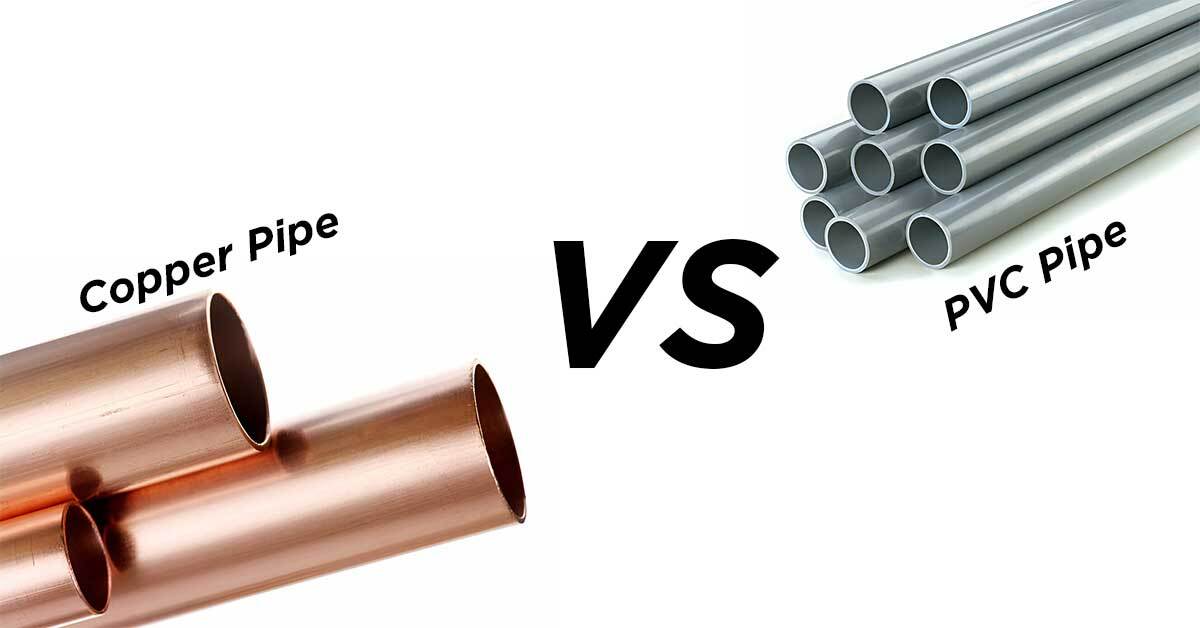24 Hour Main Service Always On Time Night & Weekends
24 Hour Main Service Always On Time Night & Weekends

In the world of plumbing, the materials you choose for your pipes are basic not only to the functionality of your water systems but also to the longevity and effectiveness of your domestic or building’s framework. Nowadays, we jump profound into a comparison that property holders and builders regularly grapple with: should you choose copper or PVC pipes? Let’s explore the merits and drawbacks of each, so you can make a well-informed choice that suits your necessities, budget, and preferences.
Copper has been a reliable material in plumbing for decades. Known for its durability and a high level of resistance to corrosion, copper pipes are often lauded for their longevity. They can final anywhere from 50 to 70 years under ideal conditions. Besides strength, copper pipes are also appreciated for their ability to withstand high temperatures and pressures, making them perfect for both hot and cold-water supplies.
On the other hand, PVC (polyvinyl chloride) pipes represent a modern solution to pipe lining that tackles some of the confinements of copper. PVC channels are essentially cheaper than copper and are less demanding to introduce due to their lightweight nature. They are safe to chemical disintegration and do not carry the chance of metal defilement, which can be a concern with older copper pipes.
When it comes to sustainability and environmental impact, copper pipes have a slight edge as they are recyclable. Most copper channels can be reused, decreasing their environmental impression. However, the mining and refining of copper can be more detrimental to the environment than the production processes for PVC.
PVC pipes, while not as environmentally friendly due to their chemical composition and challenges with recycling, offer a down to earth arrangement in scenarios where cost and ease of establishment are fundamental. They are too exceedingly safe to biological growth such as bacteria and parasites, which can be a significant advantage in certain environments.
The installation of copper pipes generally requires skilled labor as it involves soldering and handling a material that can be very rigid and heavy. This process not only increments the labor cost but too the time taken to total the plumbing installation.
Conversely, PVC channels can be cut and fitted with relative ease, and the joints are fixed utilizing dissolvable cement. This strategy simplifies the installation prepare and reduces the time and cost involved. For large projects or quick repairs, PVC regularly gets to be the more doable option.
One of the notable advantages of copper pipes is their bio-static atmosphere, where bacteria cannot thrive, making them amazing for delivering clean drinking water. Be that as it may, in acidic situations, copper can erode, possibly driving to higher levels of copper in water, which can be destructive if consumed.
PVC channels, whereas safe to erosion and corruption from acidic or soluble water, can discharge vinyl chloride and other chemicals into the water if not fabricated to fitting guidelines. It’s vital to guarantee that the PVC channels utilized are of tall quality and certified for drinking water.
Copper’s capacity to withstand extreme temperatures makes it reasonable for outside applications and in regions with serious temperature variances. PVC, however, can ended up delicate in extraordinary cold or debase beneath drawn out introduction to bright light unless particularly treated for such conditions.
Copper pipes generally require less maintenance once installed due to their durability and resistance to corrosion. However, if a copper pipe does need to be repaired, it might require a proficient to patch, which can increment the upkeep cost.
PVC pipes, while simple to repair or replace, might see more frequent issues in systems with high pressure or temperature, necessitating more regular checks and maintenance.
Deciding between copper and PVC channels bubbles down to your particular needs, natural conditions, budget, and individual inclinations. Copper channels offer life span and unwavering quality, suited for long-term ventures where introductory costs are not a constraint. PVC pipes, being cost-effective and flexible, are perfect for a wide extend of applications, especially where fetched and ease of establishment are critical.
By weighing the masters and cons nitty gritty over, you can select the fabric that best fits your project, ensuring productive, secure, and long-lasting plumbing solutions.